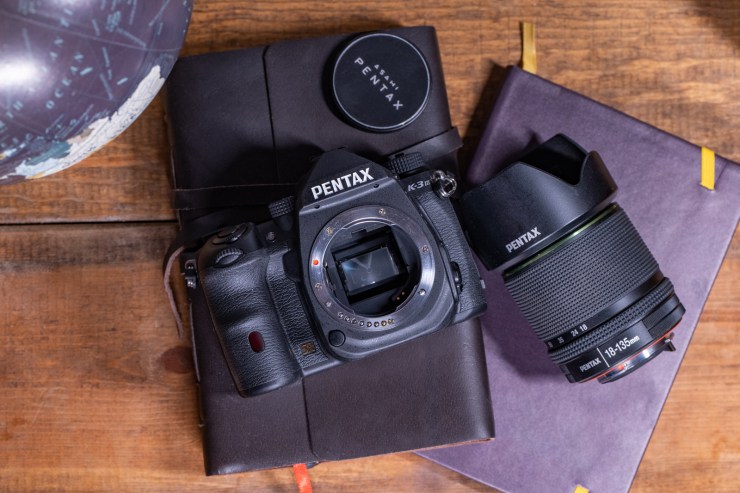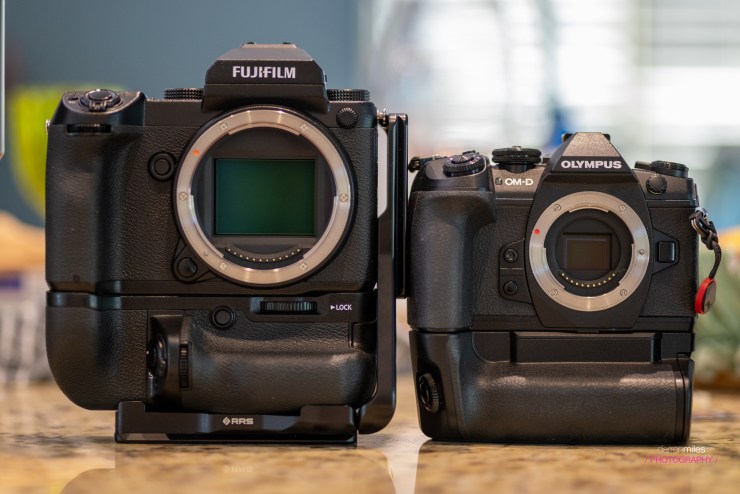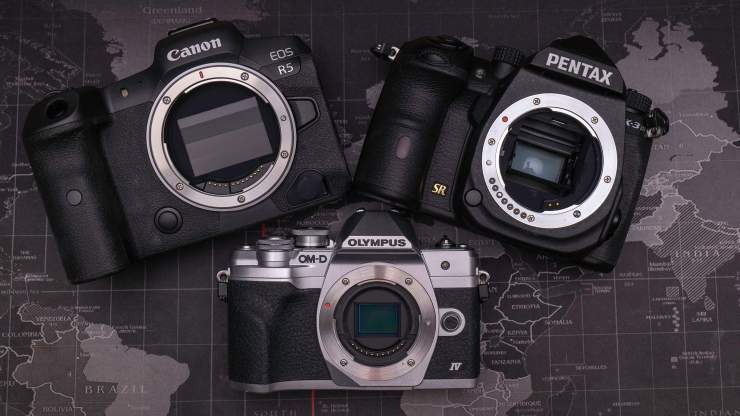As we all know, there’s a ton of misinformation and fake news out in the wild. One of the biggest pieces of drivel I see are articles that state that you can’t be a professional or advanced photographer unless you use full-frame camera sensors.
I recently read an article on a popular blog that mentioned a new APS-C camera that might come from Canon. The author claimed that current Canon full-frame cameras are for advanced photographers only. The article also claimed that cameras with APS-C sensors — like the one that might be coming — are for amateurs and hobbyists. Oh, how happy these photographers will now be thanks to Canon catering to them.
What utter garbage!
Camera sensors do not dictate your current abilities

Let’s be clear. The size of the sensor in your camera does not determine your skill set. It does not tell others if you’re a beginner, an amateur, a hobbyist, or an advanced professional. Camera sensors do not dictate your competence with a camera, or how talented you are.
An experienced photographer can create gorgeous images with a smartphone, a micro four-thirds camera, APS-C cameras, and even point-and-shoots. A full-frame or medium format camera is not what makes a photographer better or more advanced than another photographer.
The whole notion that you need to “advance” to full-frame cameras to become better is twisted. Still, many creators believe this is true. Cameras are tools that help us bring our visions to life regardless of sensor size. If you’re buying a camera because you think a certain size of camera sensor will make you a better photographer, I have some bad news for you.
Twisted logic

The level of thinking displayed in the article referenced is ridiculous. By the authors (and by many photographers’ logic), anyone holding a full-frame camera is automatically more advanced than someone who shoots with an APS-C or micro four-thirds camera. It’s an utterly stupid way of thinking and it shows just how toxic and snobbish the photography community can be.
I, and many of the authors here at Photofocus, use micro four-thirds cameras professionally. However, these small sensor cameras have never held us back. They’ve never stifled our levels of creativity. Sure, I have APS-C and full-frame cameras on hand as well, but they don’t make me produce better images. Nor do I feel more professional or more advanced when using them. The cameras I own are simply tools that I use for different tasks. They’re not a status symbol.
Cameras with large sensors, like full-frame cameras, will not magically make your abilities improve. They do not make you better than a photographer who chooses to use APS-C cameras, for example. If you want to improve, work on the fundamentals like the exposure triangle, composition, and how to light. Sensor size has nothing to do with what level a photographer might be at. If you truly believe that bigger sensors make you a better photographer, I pity you.
What camera sensor is right for you?

Don’t fall into the lie that so many blogs, forums, YouTubers and camera companies want you to believe. There’s no one-size-fits-all when it comes to cameras and the sensors they use. You don’t have to buy or own a camera with a big sensor to be a more advanced photographer. The same goes for the debate between DSLRs and mirrorless cameras. Buy a camera that will help you get your job done.
If you buy into the micro four-thirds platform for extra reach to help with wildlife photography, great. If you need to strike a balance between extra reach and extra depth of field? APS-C cameras might be for you. Need better low-light performance and even greater depth of field? Buy a full-frame camera. Do you need a medium format camera with a huge sensor to capture fine details? Buy one. Pick the tool that’s right for you. However, don’t think that the camera you use puts you above or below anyone else.
Honestly, keeping up with appearances is a ridiculous way to be a photographer. So, don’t believe that you need a certain camera or camera sensor to be a more advanced photographer. That line of thinking has no place in modern photography. You’re only limited by your imagination and your creativity, and not the camera sensors that are on offer today.
Tell your story with the second annual Visual Storytelling Conference!
Experience four days of interactive, online training sessions featuring a range of educational content with experienced photographers and content creators. This free event kicks off with a series of technical boot camps to build essential skills, followed by live, online sessions on photography, video, business and social media. Join live from March 10-13, 2022!
